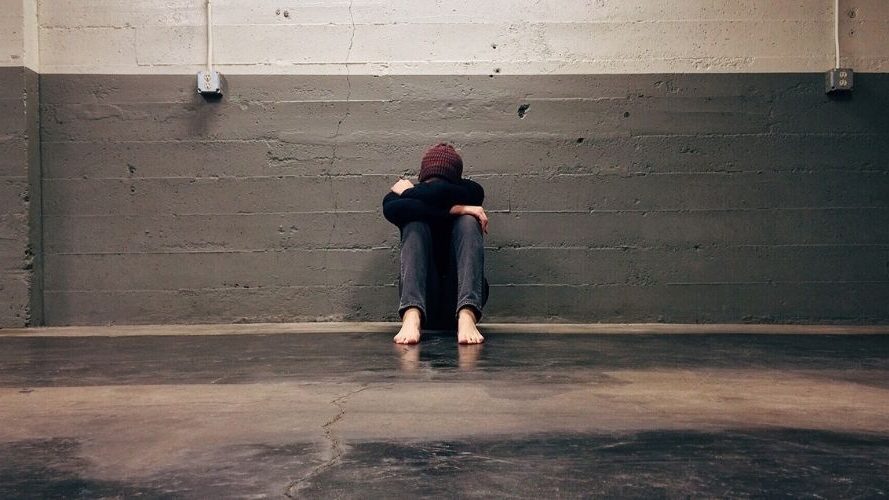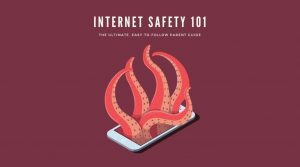While technology is incredible in a multitude of ways, it now offers bullies a whole new platform to showcase their innate desire to hurt others.
Bullies have been around forever, and, whereas, in the old days, their anti-social behavior was restricted to the playground, the school bus, or the occasional random confrontation in town, one’s home was always a safe and sacred place.
There were rules! Fast forward to the present era of digital technology and you have keyboard bullies reaching their victims effortlessly, even in the safety of their own homes.
What is cyberbullying?
Cyberbullying is a form of hatred that uses technology to hurt, humiliate, harass, embarrass, or intimidate another person.
It comes in many shapes and forms: hateful speech, trolling, sexual remarks, and leaking personal photos or details online.
Social networking has now made it effortless to source personal information about most people. A simple email lookup online, for instance, can uncover countless details about almost anyone.
Technology is, of course, extremely useful — but when used for cyberbullying and other crimes, it can cause untold pain.
Let’s look at some cyberbullying statistics to see what parents and kids are up against:
- Eighty percent of kids use a mobile phone and own several social networking accounts.
- Thirty-four percent of children in the U.S. have been victims of cyberbullying at least once.
- Only 38 percent of kids victimized by cyberbullying tell their parents about it.
- Thirty-three percent of young victims have sent or exchanged explicit text or photos to another person online at least once.
- Out of 1,000 cyberbullying victims attending high school, 210 are girls with different skin color.
Ignoring the toxic effects of cyberbullying can be devastating for children
The internet never sleeps, and the technology-driven bully can torment victims 24/7. As long as a child has access to a phone or computer with internet access, there’s no escape, and they’re always at risk.
Frequent cyberbullying can be frightful in many ways. When bullying is severe, its effects on kids and teens can vary from a decline in academic performance to, ultimately, suicide.
This is why parents need to monitor their child’s internet safety to protect them from unwanted outside influence.
Some kids have chosen to end their own lives because they feel unable to escape from cyberbullying, feeling unsafe even in their own homes.
Both victims and bullies can suffer from stress-related disorders, such as depression and extreme anxiety, due to relentless cyberbullying. Young victims (and sometimes even perpetrators themselves) run a high risk of both suicidal thoughts and attempts.

Parents: Watch out for signs of cyberbullying
Most bullied kids don’t report cyberbullying incidents to their parents or teachers.
They fear that their computer privileges will be revoked or simply to be branded with the social stigma of being a ‘victim’.
Parents must be vigilant in noticing signs of cyberbullying in their kids, which include the following:
- Showing anxiety or becoming jumpy when receiving a text, instant message, or email.
- Avoidance of family, group, or school gatherings.
- Suddenly becoming emotionally upset during or after using the phone or going online.
- Declining grades in school and showing angry behavior at home.
- Protective and secretive behavior when it comes to his/her digital life.
- Showing noticeable mood swings, changes in behavior, appetite, and sleeping patterns.
- Not wanting to talk about computer or online activities.
- Withdrawing from friends and family members, and from activities they used to love doing.
- Unexpected declarations of needing to “take a break” or to stop using the computer or phone.
For kids: tips to stop cyberbullying
You have the power to stop cyberbullying in its tracks. Here are some tips that can help:
Know the signs
Educate yourself on what cyberbullying is and how to recognize the signs so you can avoid being a victim and help others when you see it happening.
Don’t react and retaliate
Bullies are looking for a reaction from you, so don’t respond or engage them.
Reacting only encourages a bully. Ignoring a bully and not giving them the satisfaction of goading a response from you increases the chances of them leaving you alone.
If a bully calls you names and you respond in kind, you become one yourself. Revenge is never the answer…
Collect evidence
Since cyberbullying happens via technology, it’s possible to document the crime and keep it as evidence. If a bully is sending you disturbing texts or harassing you online, take a screenshot and show it to your parents.
Talk to an adult you can trust
If you experience cyberbullying, talk to your parents or school counselor.
Responsible adults can help deal with your situation, giving you less to worry about.
Ask an adult at school for advice on reporting a bullying incident anonymously if you’re worried that certain kids will discover that you’ve spoken to someone.
Practice good computer hygiene
It’s always best to develop good hygiene when it comes to computers and the internet.
- Use a strong password and never share it with anyone except your parents for emergencies. Not even your best friend should know your password!
- Always log out of your accounts, especially if using a public computer.
- Be careful what you share online (posts, videos, photos) because, once on the internet, it’s there forever.
- Never click onto a link in messages or open emails from people you don’t know. These could contain viruses or lead to inappropriate content.
Final words for parents
Learning how to spot the early signs of cyberbullying is the easiest way to nip it in the bud.
If your child is showing abnormal mood swings, it could be a possible sign. Empower your kids by educating them on what cyberbullying is, what the signs are, and what they need to do if they experience it.
Always be there for them as a friend so they won’t have a problem opening up to you.









